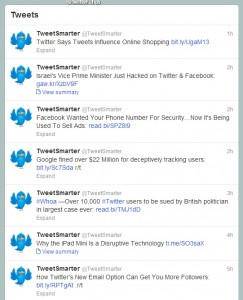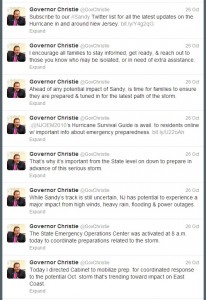 Twitter’s emergence onto the social media scene also made it an incredibly useful and often crucial tool for public relations and communications. For the same reason, companies or individuals looking to take advantage of this tool should look to put their best foot forward on the outlet.
Twitter’s emergence onto the social media scene also made it an incredibly useful and often crucial tool for public relations and communications. For the same reason, companies or individuals looking to take advantage of this tool should look to put their best foot forward on the outlet.
There’s a handful of people offering help on the matter, actually utilizing the very same medium. TweetSmarter is one of them.
The twitter handle is living up to its title and serving up a constant flow of advice on not only just Twitter, but many other aspects of social media as well.
The account is well renowned and built quite a large following since being created roughly six years ago. TweetSmarter has over 346,000 as of now, which is very respectable for anyone, but among the highest for accounts offering similar advice.
The account has also won multiple awards and been featured on CNN and the Huffington Post.
It was founded by Dave Larson, now CEO of Oppora, a social media consulting company. He still manages the feed with the help of his wife, Sarah.
This is what Larson told the Huffington Post about the account’s success:
Our plan was to help as many Twitter users as we could. In our non-Twitter life, we are working to set up free web services that help people help one another, and Twitter is an extension of that. Since everything we do is aimed at finding ways to help people, we figured we would eventually reach a lot of Twitter users. But we never expected to be one of the most retweeted accounts of all time! In fact, when TweetLevel — a tool rating users by influence — was released, it listed us as the third most influential user in the world! It’s been pretty amazing. But last year, when we had the the first tweet retweeted over 20,000 times, we knew were on to something.
And they’re not letting up any time soon. The account posted about 40 tweets yesterday alone.


